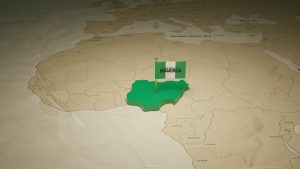The Nigerian economic landscape is undergoing a pivotal statistical recalibration, marked by the National Bureau of Statistics’ (NBS) rebasing of the Consumer Price Index (CPI) and the anticipated revision of Gross Domestic Product (GDP) metrics. This technical adjustment, though arcane to casual observers, holds profound implications for understanding inflationary pressures and shaping monetary policy. In the 299th meeting of the Monetary Policy Committee (MPC), the first in 2025, the status quo was maintained across all monetary policy parameters, a decision made against the backdrop of the newly rebased inflation figures.
Understanding the CPI Rebasing: A Statistical Reset
The CPI serves as the bellwether of inflation, meticulously tracking the average price change paid by consumers for a basket of goods and services. However, the composition of this basket and the base year against which price changes are measured are not static. Over time, consumption patterns evolve, new goods and services emerge, and the relative importance of existing items shifts within the economy. To ensure the CPI remains a relevant and accurate gauge of inflation, statistical agencies periodically (every five to 10 years) undertake a process known as rebasing.
Rebasing mitigates historical biases. For instance, the previous 2009 base year underweighted sectors like fintech and healthcare, distorting inflation readings. By realigning the CPI basket (now 934 items, up from 740), the NBS offers a clearer lens to gauge price dynamics.
Figure 1: Headline Inflation (January 2024 – January 2025)

Source: NBS
The Immediate Impact: Motion Without Movement
While the specifics of the new base year (2024) and basket composition are crucial details, the most conspicuous outcome of this rebasing exercise has been a significant downward adjustment of Nigeria’s inflation figures. For January 2025, Nigeria’s headline inflation dropped to 24.48%, down from 34.80% in December 2024. Notably, food inflation also saw a significant decrease from 39.84% to 26.08% during the same period. This statistical drop, however, must be interpreted with caution as it is not indicative of an abrupt deceleration in actual price increases but rather a recalibrated measurement framework. Direct comparisons with pre-rebase figures are misleading – akin to measuring distance with two different rulers. The rebased numbers also suggest that the perceived inflationary pressures may have been overstated under the previous CPI methodology, which necessitates a reassessment of the factors contributing to inflation and a recalibration of the policy responses designed to mitigate them.
Food’s Shrinking Weight: A Mirage
The reduced weighting of food in the CPI basket signals urbanisation and diversified consumption, not declining food costs. Nigerians still allocate a significant portion of income to food, but housing, transport, and restaurants now claim larger budget shares. Urbanisation has normalised dining-out culture, driven by food delivery apps and short-term rentals (e.g., Airbnb), redefining spending priorities. Despite its lower weight, food inflation at 26.08% underscores unaddressed supply-side bottlenecks: insecurity in farming regions, logistics inefficiencies, and FX volatility. These factors sustain upward price pressures, rendering the statistical “decline” superficial for most households.
Figure 2: Notable CPI Weights – Old (2009) vs New (2024)’ (%)

Source: NBS
Restaurants and Accommodation: The New Heavyweight
The weight for Restaurants and Accommodation Services surged from 1.2% to 12.9%, reflecting Nigeria’s urban transformation. City dwellers increasingly rely on convenience-driven services, like restaurants, meal deliveries and rented housing, a trend accelerated by post-pandemic shifts in work and lifestyle. This rebalancing captures Nigeria’s evolving informal-to-formal service economy but risks overshadowing persistent vulnerabilities in core sectors like agriculture, which remains a crucial driver of employment, food security, and rural livelihoods in Nigeria.
The MPC‘s Policy Stance: Maintaining the Status Quo
The MPC’s decision to maintain the Monetary Policy Rate (MPR) at 27.5%, along with holding other parameters constant, reflects a cautious, data-driven stance amid rebased inflation metrics. While acknowledging FX stability and moderating petrol prices as positive signals, the committee flagged persistent risks: food inflation remains elevated due to supply chain bottlenecks and insecurity in farming regions. Analysts warn these factors could sustain price pressures, even at statistically lower rates, prompting the CBN to vigilantly monitor rebased CPI trends. A sustained decline in inflation may enable a dovish pivot to stimulate growth. Conversely, stagnation or upward creep in prices would likely prolong tight monetary conditions. This balancing act underscores the MPC’s prioritisation of stability over premature easing, with structural reforms critical to anchoring long-term disinflation.
Liquidity Management and Money Supply
With lower reported inflation, the CBN may adjust liquidity management, potentially easing restrictions to boost lending and investment, crucial for Nigeria’s slow GDP growth. Improved credit access could stimulate economic expansion. However, the CBN must tread carefully. Prematurely easing monetary policy risks reigniting underlying inflationary pressures, especially if supply-side constraints remain. We believe a balanced approach is required, weighing the benefits of easing liquidity against the risk of fueling inflation, to ensure sustainable economic growth.
Final Thoughts
Looking ahead, the rebased CPI offers a refined tool for policymakers, but its utility hinges on contextual interpretation. While lower inflation figures may signal room for dovish shifts, Nigeria’s structural realities – food insecurity, FX volatility, and fiscal constraints – demand caution. The MPC must balance data-driven flexibility with unwavering focus on core reforms. Ultimately, statistical recalibration is a step toward accuracy, not a panacea. Nigeria’s journey to price stability and inclusive growth requires skillful navigation – adaptive policies, robust reforms, and a commitment to tackling the roots of inflation. The rebased CPI is a new compass, but the path forward demands more than just recalibrated metrics.






